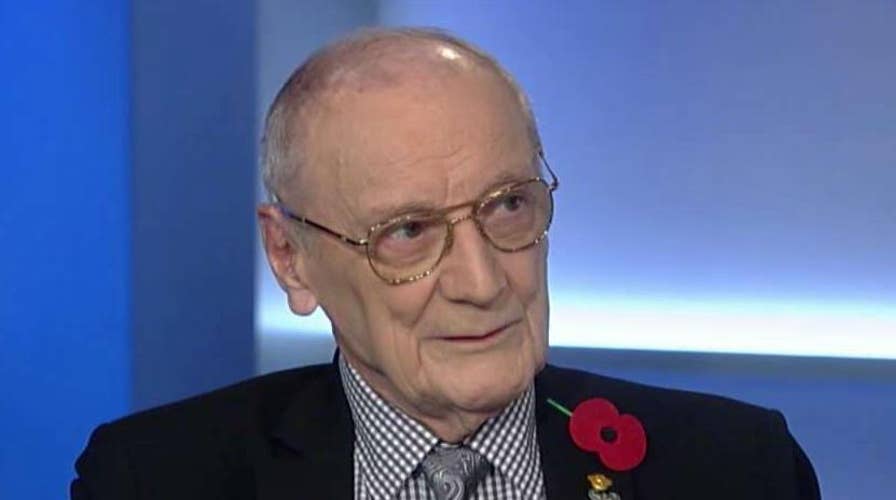D-Day veterans reflect on the lessons learned during their time in the service
Harry Miller and Colonel Frank Cohn reflect on their memories from World War II.
Seventy-five years ago this June 6, over 150,000 men ran through the waves at Normandy, France, braving artillery, mortar shells, mines, and machine guns in the biggest seaborne invasion of all time. D-Day has come to be remembered as the 20th century’s iconic battle, and with good reason. The operation was the largest if not the bloodiest of the war, itself the largest and certainly the bloodiest of the century, and perhaps our entire existence.
But that was 75 years ago, ancient history for many of us. Ask a high school student today about D-Day, and at best you’ll get a sentence or two related to the war: VE Day, VJ Day. unless they are a current internet meme or perhaps part of a video game, you’re unlikely to get more than a blank stare.
This is not necessarily their fault. Even in high school, history classes spend scant time on either of the world wars and in many cases, the lessons convey only shallow clichés and worthless, if well-meaning, bromides.
Twenty, 30 or 40 years ago, this was not necessarily a big deal. There were plenty of people around who not only knew about the war, but had lived through it, fighting in Europe or Asia, sacrificing on the home front.
Find them — in your family, in a nursing home. Make the connection while it’s still possible. The future depends on it.
Those people are rapidly disappearing. The very youngest soldier on D-Day today is in his 90s. Having just done a book on the battle, I can tell you from personal experience there are not many survivors left. Perhaps a handful of men can still bear witness to the first wave at Omaha Beach; most will be gone by the 76th anniversary.
We won’t really know how much we’ve missed.
Fortunately, many stories of D-Day and the war have been recorded, directly from veterans in interviews and memoirs. We have countless photos and souvenirs. These tell us, and future generations, much about war.
But even the best and most vivid lack the truly emotional connection that comes from shaking the hand of a man who was there, after he tells you how cold the water was, or hugging him when he recounts how the soldier next to him died.
For all our technology and its ability to revive memory and conjure emotion, we have not yet found a way to replace the impact of another human one-on-one. Even the most vivid imagination cannot quite recreate the full color of experience without the presence of the man or woman who first lived it.
Not that we shouldn’t try, and not that we shouldn’t avail ourselves of technology to learn all that we can. But still privileged with the presence of the men and women who survived World War II, it behooves us all to seek them out and hear their stories.
They are called the Greatest Generation. They are also the Silent Generation, in that many of the soldiers who fought in the war never thought of themselves as heroes, much less bragged about their exploits.
CLICK HERE TO GET THE FOX NEWS APP
While we can learn a great deal from such modesty, silence now does not help us. Their memories help us reach back to the past. The struggles they made it through inspire us to persevere through our own. The more vivid the tale, the deeper the inspiration.
Find them — in your family, in a nursing home. Make the connection while it’s still possible. The future depends on it.









































